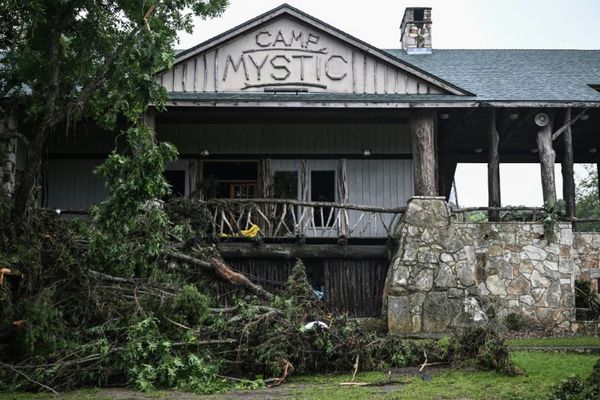
Herds of hungry diners fall in line at the four London branches of Dishoom most evenings and weekend brunch times. Maybe they are hankering after a table of fragrant small plates or a bacon naan roll (a brunch best-seller), or perhaps it’s the exotic colonial decor that has them hooked.
The restaurant business has carefully carved a distinct brand, from the nostalgic interiors (oversized fans, ornate light fittings and wicker lounging chairs at the bar) to its limited reservations policy (any size of party can book a table for before 5.45pm, but bookings are limited to groups of six or more after that).
According to Adarsh Radia, one of the chain’s four co-founders, this focus on aesthetics came from a deeper ambition to bring authentic Indian food to UK diners. “The British public have a love affair with Indian food. But the proposition offered to them was the tired stereotype of a curry house and lager,” says Radia.

Dishoom was founded by Shamil and Kavi Thakrar, who are cousins, and Adarsh and his brother Amar. They spent three years deciding how it would look, but the driving force was their shared experience of home-made Indian food. The Radia brothers grew up in an Indian family in Kenya, while the Thakrars lived in the UK but enjoyed regular trips to India as children.
Before launching the business in 2010, a group trip to Mumbai cemented the idea for how Dishoom would stand out in the crowded restaurant industry. “We fell in love with the idea of the Irani cafes of [early 1900s] Bombay [now Mumbai]. They were formed by the Parsi community who were very western in their thinking. They were trying to recreate the Parisian brasseries and the grand cafes of Vienna. These spaces ended up being community hubs in Bombay – and for us that was amazing. There was a story there.”
If you visit a branch of Dishoom, you’ll notice the close attention to detail, from the burning incense to the retro rule signs, such as: “All Chai is coming strictly without opium”.
The reservations policy was also rooted in the Irani cafe model, explains Adarsh. “They were democratic; they weren’t exclusive.” While India in the early 1900s was divided by class, caste and religion, Irani cafes were a place of inclusion – anyone could enter and the food was reasonably priced. “Being able to reserve is kind of [exclusive],” adds Radia. “You should be able to just rock up. But if you’re in a group of six or more we appreciate that you need to plan ahead.”
Dishoom’s success has been humbling, he says. It was voted the UK’s best place to eat in 2016 in a list compiled by Yelp, which was created by analysing data from users of the site. Its turnover for 2014 (the latest figure filed to Companies House) was £10.2m. It’s also been suggested that a Manchester branch could be in the works.
Adarsh enjoyed using his creativity with Dishoom, something that was stifled while running his first business (also with his brother) – a franchise of Subway sandwiches.
This move into entrepreneurship came after a stint in banking. “Coming from an entrepreneurial family I realised that [banking] just wasn’t my calling. I was quite disillusioned about two years in, so I decided I would leave and do something on my own. At the same time I [sounded out] the idea with my brother and he was equally disillusioned as an accountant. So we decided to go into business together.” Over three and a half years, the brothers grew the Subway franchise to 29 sites before selling the business.
“You’re unable to innovate much in a structured environment like that. The reason they’re successful is because they stick to their formula. That doesn’t resonate well with someone that is bubbling with ideas. I guess for me it was like being trapped.” Asked what he would do differently, he returns to the sandwich franchise. “I don’t regret Subway. But I expended a lot of energy on that business. It’s important not to get attracted by an opportunity without seeing if it overlaps with you and your values.”
After the Radias sold off their Subway interests, they moved into telecoms. Telenomics is a franchise partner of O2. “We manage about 150,000 customers,” says Adarsh. “It has introduced me to my business partner, [aside from] my brother, Asad Hamir.”
With Telenomics and Dishoom going strong, Hamir approached the Radia brothers with another business proposition – eye wear. Hamir comes from a family line of 29 optometrists and saw room for innovation in the industry.
“He gave us a history around eye wear, an industry that is really stuck in the past. There is a lack of innovation because there are just a few companies that control all the design, all the manufacture and all the distribution.”
The resulting startup, Kite, produces glasses and sunglasses which are sold to customers for £150, whatever their prescription. Some of them (all handcrafted in Italy) come with futuristic frames. This is a taste of what the co-founders are planning for future products – to install the technology you find in a smartwatch or smartphone (or in Google Glass) in stylish frames.
A smartphone can record all types of information, but is not always on your person, explains Radia. “With my glasses on [and installed with smartphone tech], I could potentially recall back what I’ve said to you. You see these motorcyclists wearing GoPro cameras to record their vision in case they’re in an accident: glasses are well placed for this type of technology.”
With Kite growing, Radia is less involved in the day-to-day running of Dishoom, although he still sits on the board. But he isn’t content with running just one startup – and 18 months ago he began working on Widerpool, a business in which he and co-founder Ignacio Macias are connecting innovative tech companies with big corporates. Widerpool provides the tech businesses with investment, support, and a ready-made network of business people, and in turn takes a stake in those businesses.
Widerpool sent out an initial call for innovative tech companies at the end of March 2015. They attracted 87 growing ventures, which then went through a rigorous screening and judging process by Widerpool’s board. The type of companies involved are not in their startup phase, but are generating revenue, have proven their concept and have a solid team that’s able to deliver products to meet the need of big corporates.
The entrants were whittled down to three and each of them was awarded $250k (£176k) of investment. This is taken from Widerpool’s fund, which is made up of angel investment. The investors hold a stake in the Widerpool fund, which in turn has a stake in the tech businesses.
The idea is that Widerpool helps these tech companies scale by integrating them into relevant corporates around the world, and corporates use Widerpool as a source of verified tech companies that they can work with to create more innovation in their global business.
With such a range of successful ventures, which is Adarsh Radia proudest of? “It’s like choosing between your children. I’m [most] proud of who I am now compared to who I was years ago. In the sense that I am constantly learning. I feel that I’m much wiser.”
Sign up to become a member of the Guardian Small Business Network here for more advice, insight and best practice direct to your inbox.







